Unqualified Yet Compelled: Why I Must Write About God’s Love
In Love Has a Story, author and poet Quina Aragon shares how, before the foundations of the earth, the great storyteller was penning a story that included you. Love was thinking about you, imagining ways to showcase His love for you, and planning to rescue you. This was not one of those sentimental loves, but a love that would traverse the wilderness in search of and for His beloved . . . and give everything—His life, blood, wounds, hope, and an invitation to be family. It’s a joy to welcome Quinn to the farm’s table today…
Guest Post by Quina Aragon
I’m sure you already know, but it’s worth repeating, isn’t it? The Bible’s story is the greatest love story ever told.
Or like the lyrics my Puerto Rican grandmother used to sing:
“Es la historia de un amor, como no habra otra igual.”[1]
“It’s a love story, like no other that will ever exist.”
In my latest book, I invite you to explore God’s love as it has existed and moved throughout and before time, and how it intends to transform your own life story. My premise is simple: love has a story, and you’re a part of it.
But, I have to confess: I have no business writing about the love of God.


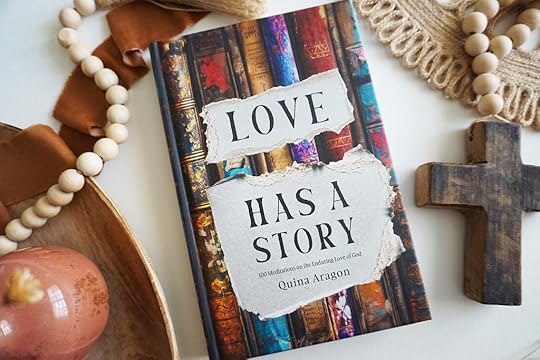


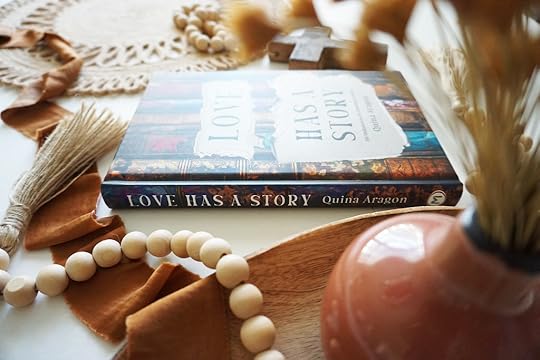


There’s something you’ll see in some of my own personal poems interspersed through my book. I sometimes—and sometimes more than sometimes—have a very hard time viewing my own story as redemptive.
“I sometimes—and sometimes more than sometimes—have a very hard time viewing my own story as redemptive.“
In my darker moments, I find myself standing in the shadowy hallway of traumas I’ve suffered, many of which compounded just as soon as I first trusted in Christ at age 16.
I hear whispers, and sometimes shouts, that I’ll never escape this hallway. I see doors open in this hallway and the shadowy figures of my reenacted traumas, the abandonments, the emotional abuse, the sexual abuse, the spiritual abuse, the overwhelming regrets—all poking out. I struggle to see any door with a bright green Exit sign.
In those moments/days/months, I hardly hear God’s love singing over me. Instead, I hear: “You’ll never escape,” and “You’re a worthless failure.” Sometimes, even: “God isn’t here. He’s not even real.”
I suffer from a mental health condition called complex post-traumatic stress disorder (CPTSD), which can develop when a person experiences chronic (long-term) trauma and stress. For most of my teenage and adult years, I assumed my intense difficulty with emotion regulation, sense of self, and relationships was just a matter of being a really bad Christian. I didn’t understand how prolonged traumatic stress had affected my brain’s chemistry and nervous system.
I knew Jesus died for my participation in evil acts, words, and thoughts. But I didn’t understand—at least not experientially—how Christ’s incarnation spoke to the goodness of my body, how His crucifixion spoke to His solidarity with abuse victims, and how His resurrection spoke to the promise of the future healing and transformation of my damaged mind, soul, body—and story.
“I didn’t understand how His resurrection power, even now, includes His still-scarred hands touching my own scars, bringing life out of my worst wounds . . . like Him.“
I didn’t understand how His resurrection power, even now, includes His still-scarred hands touching my own scars, bringing life out of my worst wounds . . . like Him.
For the last five years, through compounded traumas that broke me in ways I’m still recovering from, God has graciously taken me on a journey of rediscovering my own story with the help of mental health professionals, loving church community, and much time spent wrestling, lamenting, and learning from “the God of all comfort” (2 Cor. 1:3).
In the middle of writing my book my back gave out, and I was told in the hospital I might die that night. I was discharged the next day with no diagnosis by a doctor who insisted my back pain came from abusing drugs.
Wild.
As I spent every day going from specialist to specialist, disputing claims with my insurance, and trying to find ways to assuage the pain, I had to stop working altogether.
I’ve spent the last four years trying to finish writing this book while being (seemingly) interrupted by the intense grief of secondary infertility, four major surgeries for stage 4 endometriosis (resulting in the loss of six organs), a fifth surgery, debilitating and still-undiagnosed chronic back pain and fatigue, as well as the inconceivable loss of family and friends.
Those losses are not all limited to death, by the way, but deportation, and with others, unresolved conflict. My stomach sinks even writing that.
This book was supposed to be a 10-month writing project. It has turned into a much bigger story for me.


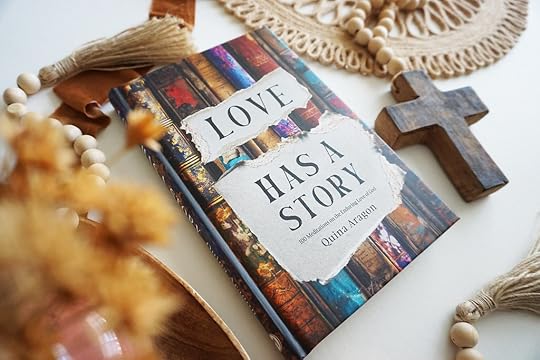


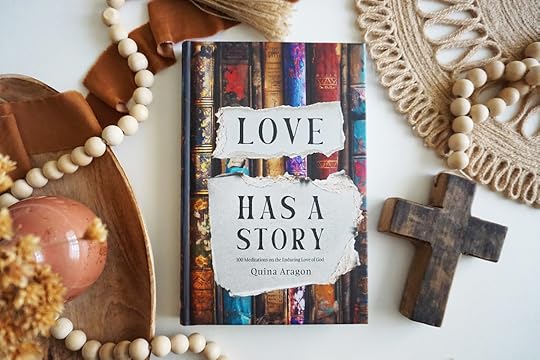
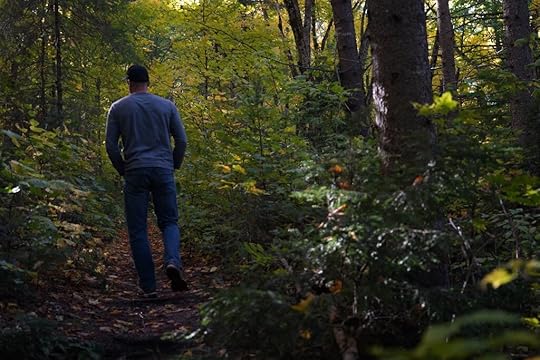
One that has had me walk through the mystery and darkness of prolonged traumas.
“No testimony of God’s indescribable love is boring or unworthy of its retelling. “
One in which the silence of God became a psalm.
Despite the many redemptive movements of God in my life in the last couple years of writing this book—including relocation, trauma therapy, family support, and even financial breakthrough—I’ve struggled to forgive, I’ve struggled with lust, I’ve struggled with intense bouts of anxiety and depression.
I’ve bucked against entrusting my story to our wonderful Wounded Healer.
I’ve cursed in the darkness. I’ve cursed the darkness.
I’ve struggled to know in my bones the love of God.
“I must show you my wounds while pointing you to His—bringing forth life from death, love from shame’s depths.“
How could I, someone who has verbalized more than once in the process of writing this book, “God hates me. He wants to kill me,” and “The world is better off without me,”—how could I pen genuine words on the love of God? I’ve both cried and laughed as I’ve asked myself this question.
I have no business writing about the love of God. But, in my woundedness, I’ve found Christ’s scarred hands holding the pieces of my story gently, compassionately, lovingly.
Thus, I must write. And (author or not) so must you.
In a conversation, in a song, in a social media post, go ahead: “proclaim the excellencies of him who called you out of darkness into his marvelous light” (1 Pet. 2:9). You don’t need to hide from the darker parts of your story.
Maybe they won’t make a film adaptation of your life story. So what? No testimony of God’s indescribable love is boring or unworthy of its retelling. In fact, it’s the unique shape of your own wounds that brings glory to God’s multifaceted love.
So, I must show you my wounds while pointing you to His—bringing forth life from death, love from shame’s depths.
And I hope you’ll do the same, too.
[1] “Historia de un amor,” Carlos Eleta Almaran; editorial Mexicana De Musica Int. S. a. (emmi), Southern Music Publishing Co. Ltd.
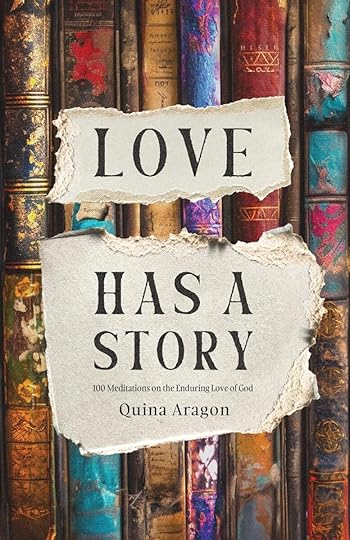
Quina Aragon is an author and spoken word artist residing in Orlando, Florida, with her husband and daughter. They are members of New Creation Fellowship Orlando. Quina is the author of Love Has a Story: 100 Meditations on the Enduring Love of God, as well as a children’s book trilogy: Love Made, Love Gave, and Love Can. You can subscribe to her email list at Quina.Substack.com.
In Love Has a Story, I invite you to explore God’s love as it has existed and moved throughout (and before) time, and how it intends to transform your own life story. I share some of my own story through poetry as well, while encouraging you to consider how your life is meant to be a story about God’s love, too.
{Our humble thanks to Moody Publishers for their partnership in today’s devotional.}
Ann Voskamp's Blog
- Ann Voskamp's profile
- 1368 followers



